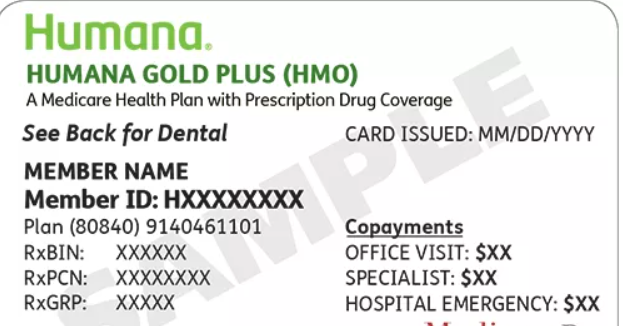The process of seeking specialized medical care can be overwhelming. When it comes to dermatological concerns, one common question arises: Do you need a referral to see a dermatologist? This article delves into the complexities of this question, exploring the various factors influencing the answer and providing you with a clear understanding of the referral process.
Contents
Understanding the Referral System
The referral system is a cornerstone of many healthcare systems worldwide. In its essence, a referral is a formal recommendation from one healthcare provider to another, facilitating access to specialized care. The system serves multiple purposes, including:
- Cost Control: By ensuring patients receive the appropriate level of care, referrals can help manage healthcare costs.
- Coordination of Care: Referrals promote communication between healthcare providers, ensuring a seamless transition for the patient.
- Access to Specialists: Referrals provide a controlled entry point to specialized care, ensuring that specialists’ time is utilized effectively.
The Role of Health Insurance
Your health insurance plan plays a pivotal role in determining whether you need a referral to see a dermatologist. Insurance plans vary widely in their referral requirements, and it’s crucial to familiarize yourself with your plan’s specifics.
- HMOs (Health Maintenance Organizations): HMOs typically require referrals for most specialist visits, including dermatologists.
- PPOs (Preferred Provider Organizations): PPOs offer more flexibility, often allowing patients to see specialists without referrals, although out-of-pocket costs may be higher.
- POS (Point of Service) Plans: POS plans combine elements of HMOs and PPOs, allowing some specialist visits without referrals but often with higher out-of-pocket costs.
Understanding the referral requirements of your specific health insurance plan is paramount to avoid unexpected costs and delays in treatment.
When a Referral May Be Necessary
Even if your insurance plan doesn’t explicitly require a referral for a dermatologist visit, certain circumstances might necessitate one. These circumstances include:
- Complex or Chronic Skin Conditions: For conditions requiring specialized expertise or ongoing management, your primary care physician (PCP) might recommend a referral to ensure you receive the most appropriate care.
- Surgical Procedures: If your dermatological condition requires a surgical intervention, a referral from your PCP might be necessary to ensure the procedure is covered by your insurance.
- Coordination of Care: If you have multiple health concerns, a referral to a dermatologist might help ensure that your care is coordinated effectively across different specialties.
In these instances, your PCP plays a vital role in assessing the need for a referral and ensuring you receive the optimal treatment for your condition.
Benefits of Seeing a PCP First
While a referral might seem like an additional step, seeing your PCP first can offer several advantages:
- Comprehensive Assessment: Your PCP can conduct a thorough evaluation of your health, identifying any underlying conditions contributing to your dermatological concern.
- Personalized Treatment Plan: Your PCP can tailor a treatment plan addressing both your immediate dermatological needs and any underlying health concerns.
- Coordination of Care: Your PCP can facilitate communication with the dermatologist, ensuring a seamless transition and continuity of care.
- Cost Savings: In some cases, seeking treatment from your PCP first might be more cost-effective than visiting a specialist directly.
Seeing your PCP first can ensure that you receive holistic care addressing all aspects of your health.
How to Obtain a Referral
If your insurance plan or medical condition necessitates a referral, the process is usually straightforward. Here’s how to obtain a referral:
- Contact Your PCP: Schedule an appointment with your PCP to discuss your dermatological concern and request a referral.
- Provide Relevant Information: Be prepared to share details about your symptoms, any previous treatment attempts, and your insurance information.
- Receive the Referral: Your PCP will provide you with a referral, which you can use to schedule an appointment with a dermatologist.
Most PCPs will readily provide referrals when medically necessary, ensuring you receive the specialized care you need.
The Direct Access Option
In some cases, you might be able to see a dermatologist without a referral, even if your insurance plan typically requires one. This is known as “direct access,” and its availability depends on various factors:
- State Regulations: Some states have laws mandating direct access to certain specialists, including dermatologists.
- Insurance Plan Flexibility: Some insurance plans offer direct access options, even if not required by state regulations.
- Specific Dermatological Concerns: Some minor skin conditions might not require a referral, although it’s advisable to consult your PCP first.
If you’re considering direct access, it’s crucial to research your state’s regulations and contact your insurance provider to confirm coverage.
When to Seek Immediate Dermatological Care
While most dermatological concerns can be addressed through routine appointments, certain situations warrant immediate attention. These situations include:
- Severe Allergic Reactions: If you experience a sudden, severe rash, hives, or difficulty breathing, seek emergency medical care immediately.
- Rapidly Spreading Infections: If you have a skin infection that’s spreading quickly or causing systemic symptoms, such as fever or chills, seek prompt medical attention.
- Suspicious Moles: If you notice a new or changing mole with irregular borders, color variations, or bleeding, consult a dermatologist immediately.
In these instances, prioritizing prompt medical care can prevent complications and ensure the best possible outcome.
The Bottom Line: Do you need a referral to see a dermatologist?
The answer depends on various factors, including your health insurance plan, your specific medical condition, and your state’s regulations. While referrals might seem like an additional hurdle, they can ensure that you receive the most appropriate care and maximize your insurance coverage.
Remember, your PCP is your first point of contact for any health concern. They can assess your condition, recommend a treatment plan, and refer you to a specialist if necessary. By working collaboratively with your PCP, you can navigate the referral process seamlessly and receive the optimal care for your dermatological needs.
Frequently Asked Questions (FAQs)
- Can I see a dermatologist without a referral if I’m willing to pay out-of-pocket?
Yes, in most cases, you can see a dermatologist without a referral if you’re willing to pay for the visit out-of-pocket. However, it’s advisable to check with your insurance provider first to understand any potential limitations on coverage.
- Can I see a different dermatologist if I’m not satisfied with the one I was referred to?
Yes, you have the right to seek a second opinion or switch dermatologists if you’re not satisfied with the care you’re receiving. Contact your insurance provider to understand any procedures for switching providers.
- What if I need to see a dermatologist urgently but can’t get a referral in time?
In urgent situations, you can often visit an urgent care center or emergency room for initial evaluation and treatment. They can then refer you to a dermatologist for follow-up care if necessary.
- Can I request a referral to a specific dermatologist?
Yes, you can request a referral to a specific dermatologist, although your PCP might have recommendations based on their expertise and your insurance coverage.
- What if my insurance company denies my referral request?
If your insurance company denies your referral request, you have the right to appeal the decision. Contact your insurance provider to understand the appeals process and gather any necessary documentation.
Conclusion
The question of whether you need a referral to see a dermatologist has no one-size-fits-all answer. It’s crucial to understand your insurance plan, consider your medical condition, and explore any direct access options available to you. By working collaboratively with your PCP and utilizing available resources, you can ensure that you receive the timely, specialized care you need for your dermatological concerns.
Read More: The Health Insurance Store: Revolutionizing the Way We Choose Healthcare Coverage





